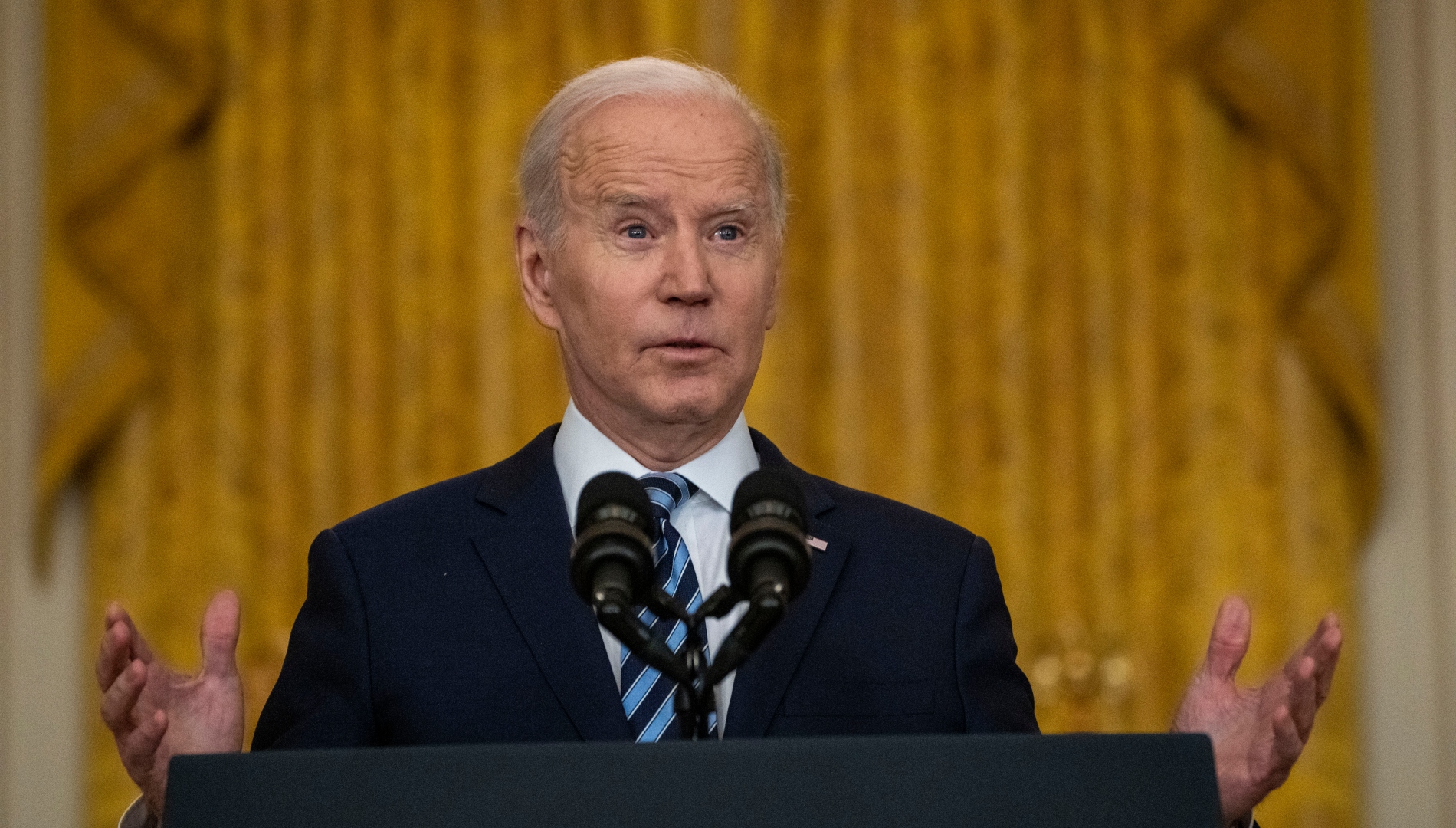OPINION: This article may contain commentary which reflects the author's opinion.
Survey after survey of voters in recent weeks has indicated that inflation — critics of the current administration are calling it “Bidenflation” — is their top concern heading into the 2022 midterm elections, but according to new data, it isn’t going to abate anytime soon.
That’s because the Federal Reserve’s preferred metric for gauging and tracking inflation — the Personal Consumption Expenditures Price Index — is rising more now than at any time in recent history.
In February, the PCEPI rose to 6.4 percent year-over-year, blowing past the 6.1 percent rate in January, which then marked the highest rate of inflation since 1982. Even without considering the volatile categories of food and fuel — which is in itself a little mysterious, given that nearly all Americans have to pay for both — the PCEPI still rose 5.4 percent year over year.
The Daily Wire adds:
Rising price levels have been a major criticism of President Joe Biden’s first year in office, with 83% of Americans responding affirmatively to a poll asking whether “increased prices of everyday items caused you or your household any hardship” over the past month.
Likewise, voters were also asked about the recent surge in gas prices. 39% blamed the trend on the Biden administration; 21% blamed gas and oil sanctions placed by the Biden administration and Western allies on Russia; 18% blamed oil and gas companies; and 8.5% blamed COVID-19.
Last month, the Federal Reserve — which is charged with manipulating the money supply to target stable inflation and maximum employment — raised interest rates for the first time since December 2018. The 0.25% bump from near-zero levels is an attempt to tap the brakes on inflation; indeed, the Fed is predicting six more rate increases in 2022, three in 2023, and zero in 2024.
“Indicators of economic activity and employment have continued to strengthen. Job gains have been strong in recent months, and the unemployment rate has declined substantially,” the central bank’s Federal Open Market Committee noted in a statement. “Inflation remains elevated, reflecting supply and demand imbalances related to the pandemic, higher energy prices, and broader price pressures.”
“The Committee decided to raise the target range for the federal funds rate to 1/4 to 1/2 percent and anticipates that ongoing increases in the target range will be appropriate,” the statement adds. “In addition, the Committee expects to begin reducing its holdings of Treasury securities and agency debt and agency mortgage-backed securities at a coming meeting.”
The Daily Wire’s Cabot Phillips explained during a recent episode of Morning Wire that Fed rate hikes will definitely have ripple effects throughout the U.S. economy.
“The general idea is that as interest rates go up, average people are less likely to take out loans because the deals aren’t as good as they’ve been,” he said. “As that happens, the idea is that people will stop borrowing and spending money, which will leave fewer active dollars in the economy … hopefully curbing inflation.”
“For anyone taking out larger loans, they are gonna notice this,” Phillips continued. “If you have an existing car loan or federal student loan, those won’t be affected, because they’re fixed rates, but others will.”
Over the 12 months ending in February, the Consumer Price Index rose by 7.9 percent, which is a four-decade high.
Sen. Rand Paul (R-Ky.) said in an 18-page report last month called “The Hidden Tax” blamed the CPI increase on “excessive” spending by Congress during the pandemic.
He also warned that the rising prices are “only going to get worse.”
“In recent months, prices on nearly everything from gas, food, and clothes to electricity, car prices, and rent, have all increased, and unfortunately it’s only going to get worse,” Paul said in a statement. “Congress needs to realize that further spending at this time of rapidly rising prices is only going to continue the trend of rising prices on this nation’s already vulnerable businesses and families.”
